Book choices for today:
Fruits Valerie Bodden
Fruits Cynthia Amoroso
Fruits Robin Nelson
Science: (first circle)
Need for lesson – A tray with a variety of fruits: strawberry, apple, banana, grapes, kiwi, etc. If you can get a peach and crack open the pit so children can see the seed inside. A pineapple also is needed for the lesson. Fruit vocabulary cards.
Science 24
We started to talk about the four main food groups. We are going to talk about just fruits today. They are a part of the Vegetable-Fruit Group. On our tray we have some different kinds of fruit. Let’s see what they are (ask the children the names of the fruits).
Why do we call these fruits? How do we know that they are a fruit? A fruit is the part of a flowering plant. In our pumpkin story, the flower shriveled up and then a fruit, the pumpkin, began to grow in its place, do you remember that? If it has seeds – it is a fruit!
Some fruits have seeds right in the good part that we eat. Oranges, grapes, and watermelons are like that. Some fruits have seeds in another part that we don’t eat. They are in the core of a fruit. Apples and pears have seeds in their core.
Some fruits have seeds that we cannot see. The seeds are hiding inside of a pit like in peaches and plums. Pits are very hard to open, but we know there are seeds in there. Bananas have seeds that are so tiny that they are hard to see. A strawberry’s seeds are on the outside of the fruit. Pineapples have seeds on the outside too. Every section with a little soft sticker is a seed.
It is important to eat fruits from the Vegetable-Fruit Food Group. Can we only eat fruits to keep strong, healthy, and growing? We need to eat from all the food groups. How do we know if we are eating a fruit?
While you talk about the different fruits, be sure to show sample fruits and the seeds.
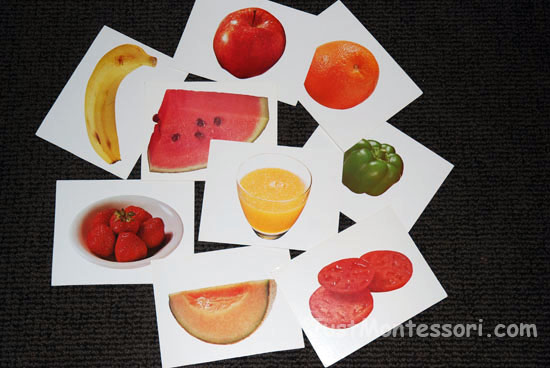
Additional Work:
Fruit Matching – I made these cards with stickers.
Counting Blueberries – Read the story “Blueberries for Sal”. I made 12 blueberries out of baking clay. This work is for two children. One wears the blindfold and listens to the other child drop blueberries into the bucket. The blindfolded child counts how many the other child dropped in the bucket, and tells their friend the amount they counted by listening to them hit the bottom of the bucket.
Melting Apples – Use baking soda and food coloring, mixed with water to form into little apples. Children use a spray bottle or other type of bottle to spray with vinegar to watch the apples melt.
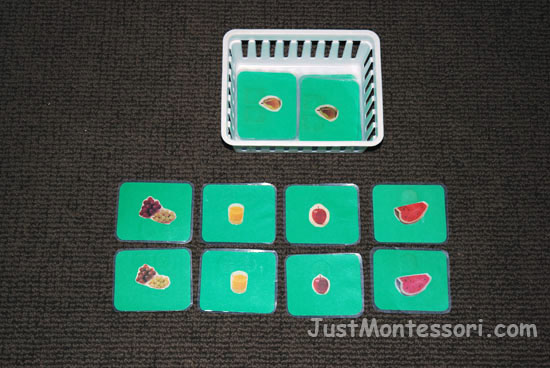
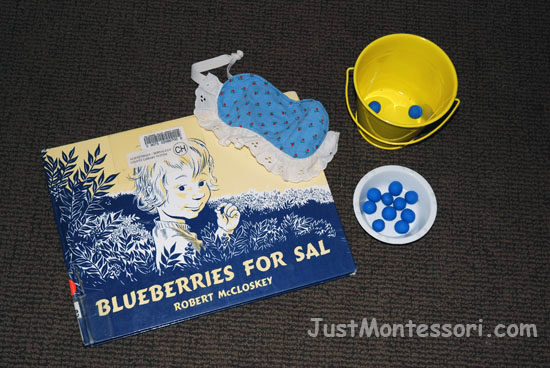
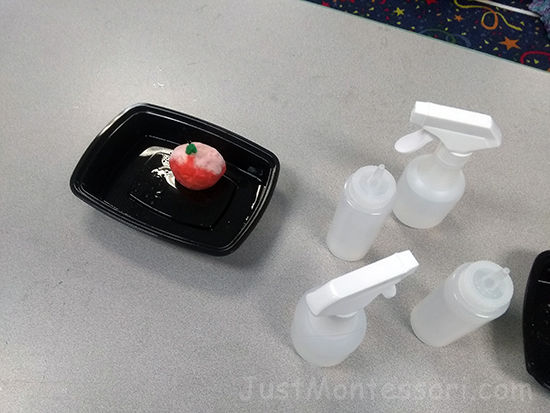
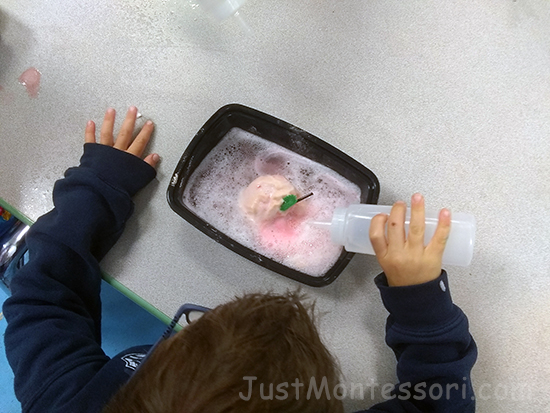
Practical Life:
Fruit Sorting
Strawberry Transfer
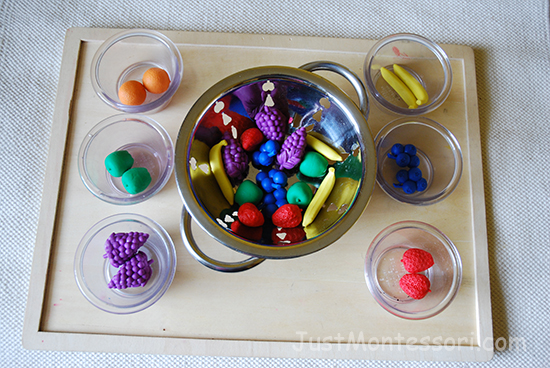
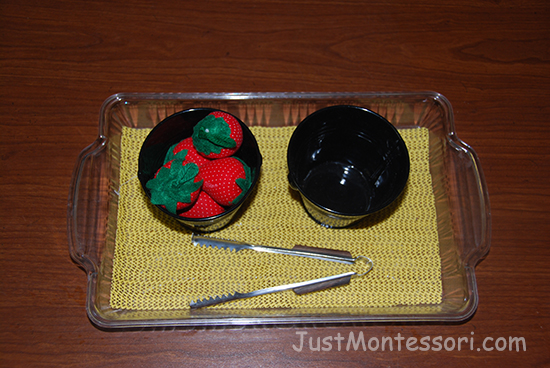
Art:
Fruit Book – This fruit book is from dltk-teach.com. I like to put the smelly markers with it so children can enjoy fruit smells as they color.
Fruit Prints – Using real fruits, sponges, or stamps, children can make fruit prints with paint.
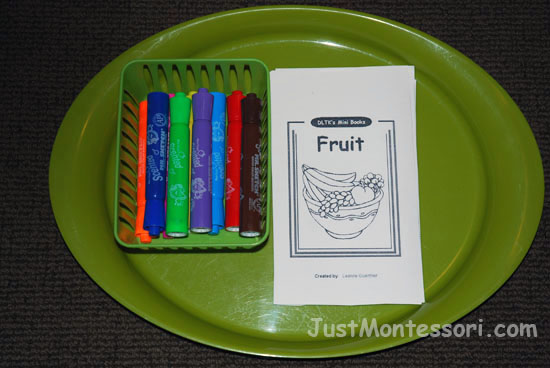
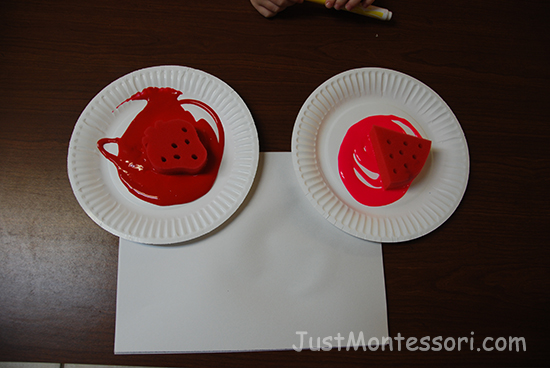
Spanish:(second circle)
Need for Lesson – Variety of fruits to learn the names of in Spanish.
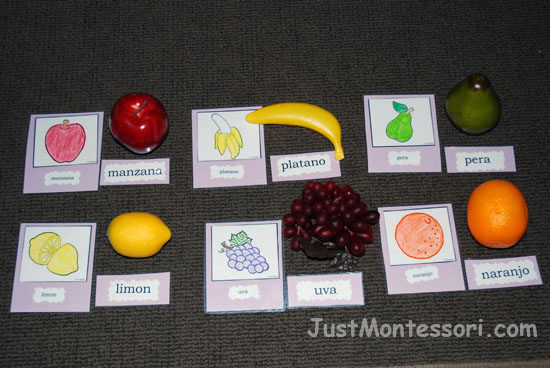
Song (CD) choices for today:
Eat Good Food Exercise – Janet Judy
Banana Bon Appetit
Going to Market Frank Leto
Apples and Bananas Raffi
Buy Weeks 11-14 PDF
-
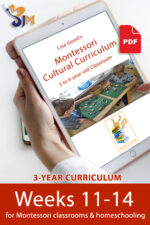 (D) Weeks 11-14$25.00
(D) Weeks 11-14$25.00


